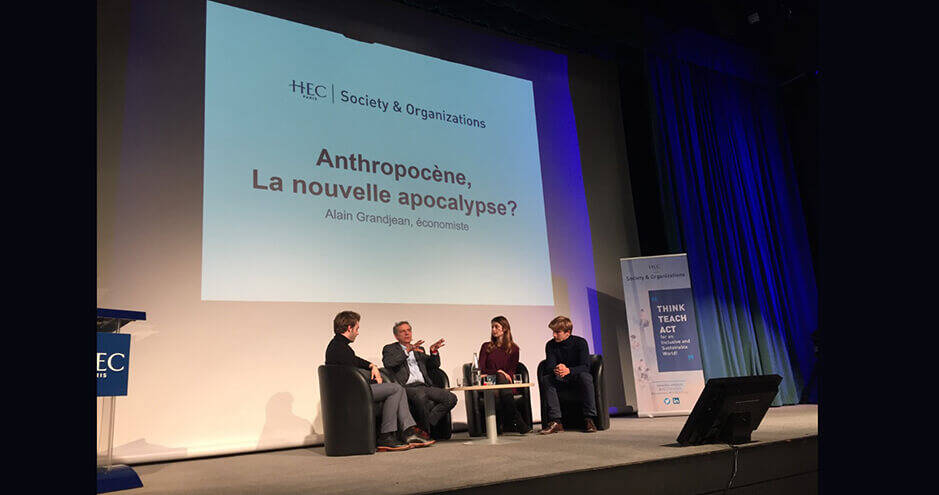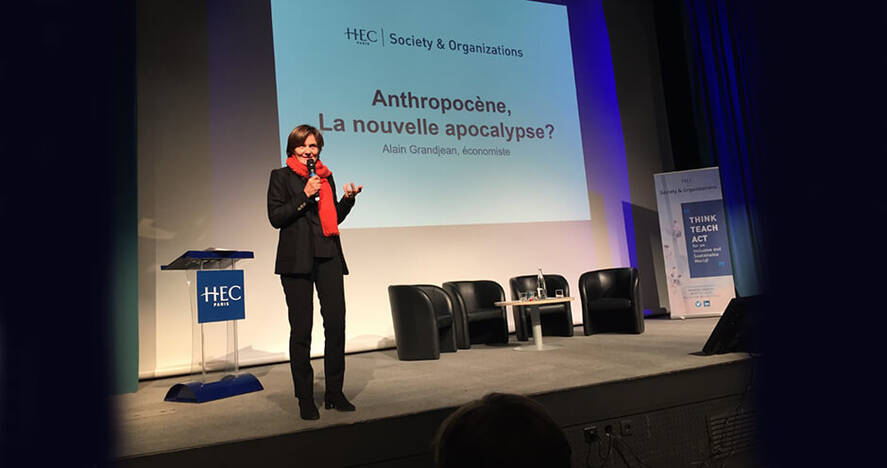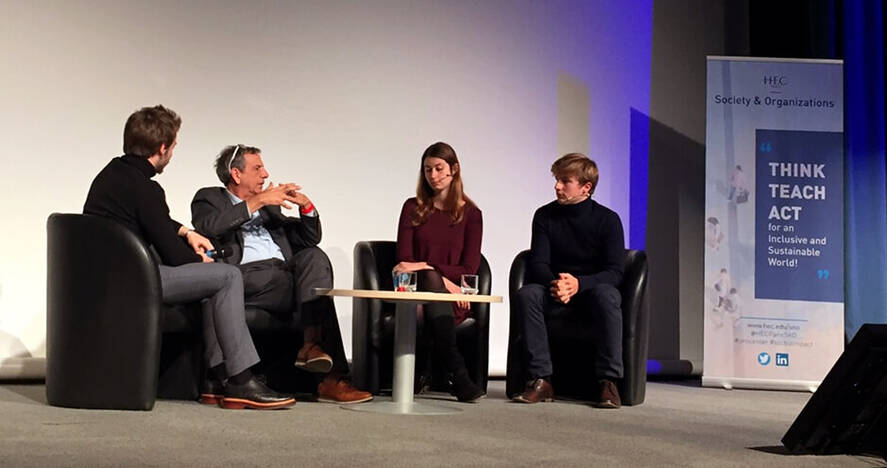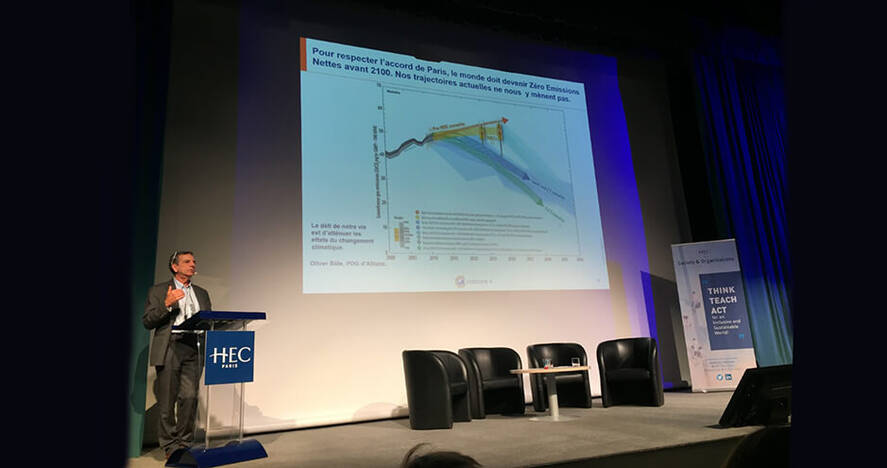Economist Alain Grandjean Throws Down the Climate Gauntlet
French economist Alain Grandjean joined HEC students and academics for a 90-minute exchange co-organized by Pour un Réveil Ecologique. The campus event with the cofounder of Carbone 4 was part of an S&O series devoted to society’s ecological and social transition.

The Anthropocene designs a geological era dominated by the impact of human activity on the biosphere and the Earth’s natural resources. While hotly debated, this “age of humans” has been at the heart of Alain Grandjean’s reflection for over a decade. Currently, it nourishes his popular blog, Chroniques de l’anthropocène. Grandjean’s 30 years as a corporate executive and consultant provided a compelling platform from which to discuss the question posed on December 4 at the Blondeau Amphitheater at HEC: “Anthropocene, the New Apocalypse?”
Several hundred freshmen students followed the 90-minute conference introduced by S&O Center Executive Director Benedicte Faivre-Tavignot: “What role can HEC play in confronting fundamental questions such as climate change? How can you, as future business leaders, make a difference and play a major role in reducing globing warming? And how will you help your business to adapt to these new realities?” she asked. “Alain Grandjean is here to challenge us on what we are doing here to integrate climate issues into our research and teaching.”
In a probing outline of Grandjean’s career, freshman student Louis Fidel then sketched out the economist’s philosophy and objectives: “You are a guardian driving us to become engaged. By so doing, you aim to limit the inevitable destruction linked to the frenzy of human activity.” The student in Master in Management then enumerated the challenges the economist addresses: “Will we be protectors of Earth or impotent witnesses? Guardians or gravediggers of our world? In this ideological world how can you act both in the private and public domains, as both an optimist and someone who believes we cannot avoid a collapse but can only limit it…?”
Living with Contradictions
From the outset, Grandjean acknowledged these seeming contradictions: “We are heading towards a massive shock (to our global system). The good news is that we know exactly what is causing it, this global warming, two-thirds of which comes from the use of fossil fuels. Our biggest challenge is to accept a profound transformation of our means of production and consumption.” The expert in energy transition detailed the various levers at the students’ disposal to accompany the transformation. “These touch on governance, fiscal, financial and economic policy, science and technology, territorial planning and both individual and collective actions. All of these need to be activated, it falls on this generation and if you fail, well, you will be prone to many, many management errors.”
Despite the somber prognostics, the author of "Agir sans attendre" was upbeat. “I’m not petrified by these challenges, there are solutions. I’m no Father Christmas, so unfortunately I can’t propose solutions which can limit the negative impacts definitively. But there is a world of difference between a planet at 2°C and one at 1.5°C, where we can limit the scale of the damage.” Quoting the renowned French climate specialist, Valerie Masson-Delmotte, Grandjean underlined his belief that new recipes need to be invented by the emerging generations: “Each half-degree counts, each year counts, each choice counts.”
The students rained down questions on Alain Grandjean after his 40-minute presentation; “Do we need an ecological dictatorship? What responsibilities does the digital sector have in climate change? Can there be a unifying European policy given its diversity in energy visions? What job and training would you choose if you were in our shoes?” To this last question, Grandjean insisted on the need for a multi-disciplined background. “You all need a degree of transversality. And you need to understand this world, cultivate yourselves because this planet is changing radically and so are the jobs out there. Business schools have a responsibility in this: they need to create courses which help you find niches in a job market where global warming is one of several challenges that need to be addressed. It’s HEC’s responsibility to provide you with the weapons to answer and invent the solutions to these issues.”


